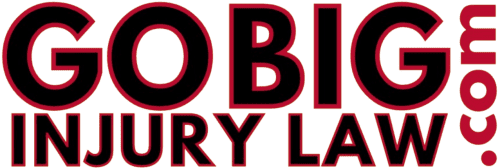Class action lawsuits are a powerful tool for consumers who have been wronged by large corporations. These legal cases allow a group of people with similar claims to join together and take collective action against a company or entity. For many, class action lawsuits are the most effective way to seek justice when facing widespread harm, such as defective products, misleading advertising, or harmful pharmaceuticals.
What Is a Class Action Lawsuit?
A class action lawsuit is a legal case in which one or more individuals, known as the “lead plaintiffs,” represent a larger group, or “class,” of people who have suffered similar harm. This group collectively seeks compensation or other forms of legal relief from the defendant, which is typically a large corporation. The benefits of a class action include pooling resources, sharing legal costs, and potentially achieving a more substantial settlement than individual lawsuits might yield.
Who Can Join a Class Action Lawsuit?
To join a class action, you must have suffered harm similar to that experienced by others in the group. This could include financial losses, physical injuries, or other damages resulting from the actions of the defendant. Common examples of class action lawsuits involve defective products, consumer fraud, environmental disasters, and employment disputes.
If you’re unsure whether you qualify to join a class action, it’s essential to consult with a legal professional who can evaluate your situation and advise you on the best course of action.
The Process of a Class Action Lawsuit
Class action lawsuits follow a specific legal process:
- Filing the Complaint: The lead plaintiffs file a lawsuit on behalf of the class. This complaint outlines the allegations against the defendant and the harm suffered by the class members.
- Class Certification: The court determines whether the case meets the criteria for a class action. This involves proving that the claims of the lead plaintiffs are typical of the class and that a class action is the most efficient way to resolve the dispute.
- Discovery: Both sides gather evidence to support their claims or defenses. This may involve reviewing documents, taking depositions, and consulting with experts.
- Settlement or Trial: Many class actions are settled before reaching trial. If a settlement is reached, the court must approve it to ensure it is fair to all class members. If no settlement is reached, the case proceeds to trial.
- Distribution of Damages: If the class action is successful, compensation is distributed to the class members based on the harm they suffered. This process can take time, as the court must ensure that all eligible members receive their share.
Benefits of Joining a Class Action
Joining a class action can provide several advantages:
- Strength in Numbers: By joining with others, you have a greater chance of holding the defendant accountable for their actions.
- Cost-Effective: Legal costs are shared among all class members, making it more affordable than pursuing an individual lawsuit.
- Efficient Resolution: Class actions can often resolve issues more quickly than individual lawsuits, especially when dealing with large-scale harm.
How Go Big Injury Lawyers Can Help
If you believe you may be eligible to join a class action lawsuit, Go Big Injury Lawyers is here to help. With offices conveniently located in Atlanta, Albany, Augusta, Athens, Columbus, and Macon, we are dedicated to serving the people of Georgia. Our team is available 24/7 to provide free consultations and discuss your legal options. You can reach us anytime at 800-777-7777.
Don’t hesitate to take action if you’ve been wronged. Class action lawsuits can be an effective way to seek justice and compensation for the harm you’ve suffered. At Go Big Injury Lawyers, we are committed to helping you navigate this process and achieve the best possible outcome.

 CALL US NOW
CALL US NOW





